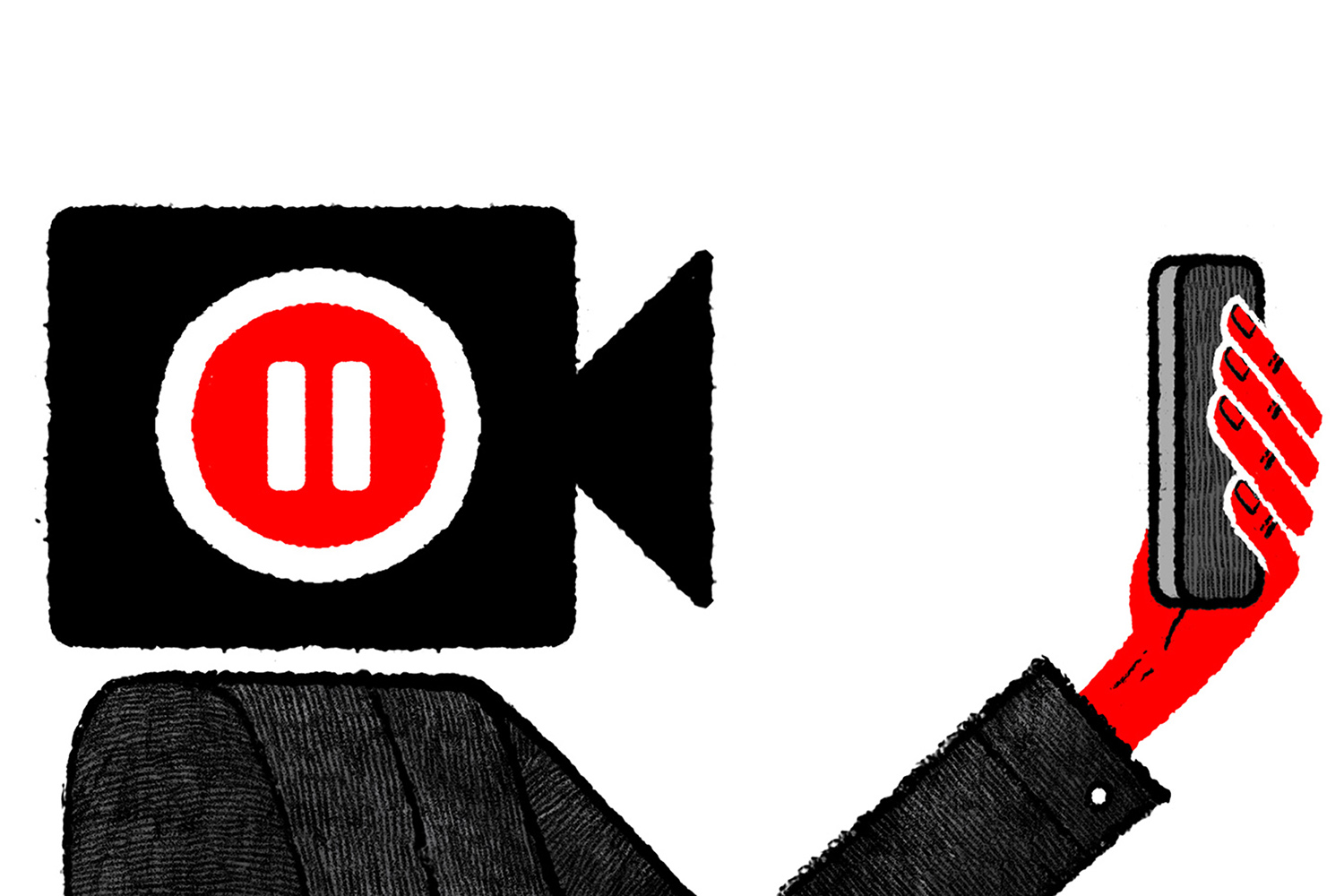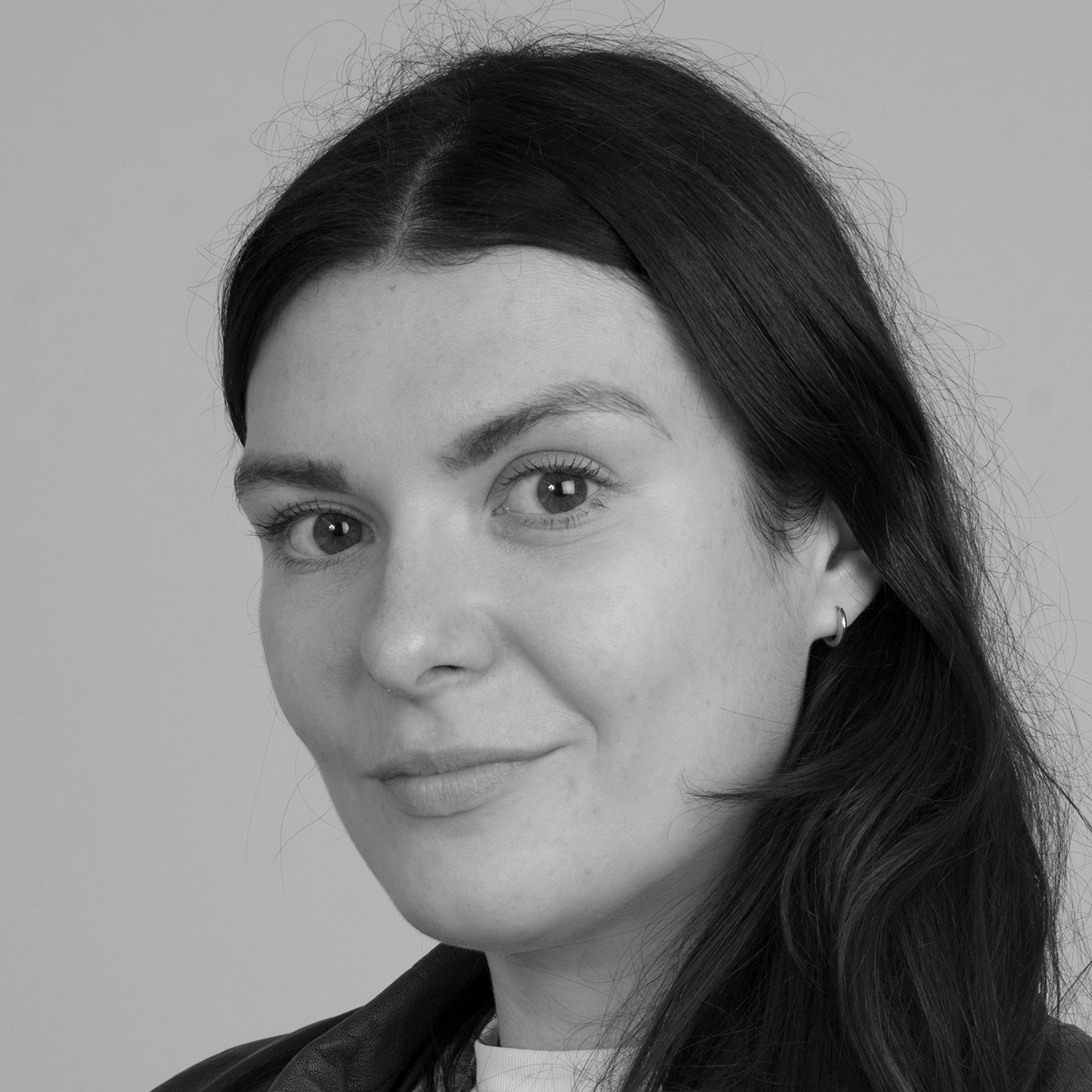It started with the pause. The millennial pause, to be more specific. The split second of dead air that appears on face-to-camera videos made by anyone aged between 28 and 43. The pause is a tiny intake of air, a preparation for a monologue that comes with still, at this big age, not being quite used to performing for our own face and the faceless blob of the internet. A muscle memory holdover from a time long ago when apps like Instagram and Snapchat were laggy and clunky.
Gen Z, that generation of digital natives who can’t remember a time before the constant pull of the online world, don’t pause before they speak to their phone cameras. They’re always ready to film and be filmed, to perform for an unseen audience. Lying in wait, they spotted the weakness in their predecessors’ speech patterns and were typically vicious in their assessment. This person, pausing, was an old person.
Spend all the money you want on Botox and mini martinis and Damson Madder baby tees. It doesn’t matter, the pause gives you away. And it is just one example of that wider epidemic: millennial cringe.
Once I found out about the concept of millennial cringe, a little late to the trend of course, I became obsessed with it, determined to understand it and absolve myself in the process. I learned, with mounting horror, that there are many things that make up millennial cringe. I list them here now for you to experience that same horror: wearing skinny jeans, being performatively clumsy or a self-confessed “klutz”, using acronyms like “lol”, statement necklaces, sharing important professional and personal updates about your life online by saying “I did a thing” (even if you did, in fact, do a thing! Though exclamation marks are out too), but also filming yourself from an angle high above your head, painting your flat grey, taking photos in landscape mode, posting boomerangs, high-waisted pants, side partings, being earnest.
Have I not, with sincerity, referred to my pets as ‘fur babies’?
Have I not, with sincerity, referred to my pets as ‘fur babies’?
The first stage of grief, according to my millennial self-help books, is denial. So this is where I began. OK, fine, I’m telling myself, wringing my hands. OK, millennials are cringe now. Fine. That doesn’t apply to me though, right? It could never apply to me. I’ve seen La Haine! I once went out with a man who was in a band! I lived in Williamsburg! I used to be a vegan! I go to reformer pilates! I worked at Vice!
You begin here, in panic, but you quickly move on to acceptance. Have I not, with sincerity, referred to my pets as “fur babies”? And were those pets not brachycephalic dogs? Did I not once have a side-parted balayage haircut, and a chronic addiction to Topshop Joni skinny jeans? Was my speech not at one stage littered with the semi-ironic markers of millennial speak, such as “doggo” and “smol bean” and “epic” and “random”? Must I swallow the bitter pill that, at one stage, I sincerely believed in the promise of hashtag girl boss feminism? Sadly, I must. We all must. It is our duty as millennials, now taking our place as the geriatric losers of public life.
We must do this because, without acceptance, we cannot move on. Millennials, veterans of endless global recessions – and more still to come! – are frequently accused of being pathologically unable to grow up. We marry later, have children later, buy houses later, if at all, and all these things supposedly keep us in a state of perpetual adolescence. We’re naturally to blame for the fall of various luxury, late-adulthood industries, from diamonds to cars. Admittedly, it is deeply adolescent to care about being cool. To move on from our stasis, we must face up to the fact, as every generation before us has done, that what we once thought cool has become cringe, that what we believed to be progressive has become passé.
It will be difficult for millennials to do this, because our greatest generational weakness (apart from smol doggos) is that cringeworthy sense of earnest self-belief, an inherent optimism that one day things will get better. That wars will end, prices will fall, our particular brand of cool will prevail. We were bred, supposedly, to believe that we mattered, that we could do whatever we wanted, that we were special just for existing.
Unluckily for us though, our gen Z successors hate nothing more than earnestness. They despise optimism, they hate encouragement to always “be kind”. As a generation, like every generation before them, zoomers are determined to place themselves apart from their elders. They’re more ironic, more conservative, they marry younger and reproduce younger, surprisingly often to Elon Musk. They hate identity politics, they hate liberal fourth-wave feminism. And they hate pausing before recording their videos.
The problem with defining yourself in reactionary terms – I don’t know what I stand for, but I know what I stand against – is that it exists on a hamster wheel of constant “progress”. Gen Z should be wary. Gen Alpha, now reaching their own teenage years, will do to them what zoomers did to us. Whereas gen Z are defined by their irony, gen Alpha are grizzled survivors of a Covid childhood. They spend less time on their phones, having always grown up with them in their faces, but have matured faster. As pre-teens they had anti-ageing skincare routines. They already have their own style of speaking.
Newsletters
Choose the newsletters you want to receive
View more
For information about how The Observer protects your data, read our Privacy Policy
Do gen Zers know how to translate the lexicon of gen Alpha? Do they know what “skibidi” means? If not, they’re already sliding towards the same sad future that we millennials now find ourselves in. What is cool will always become cringe. The kids are always coming up from behind.

